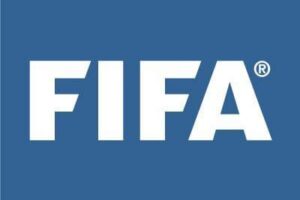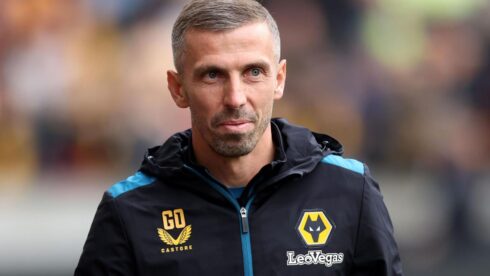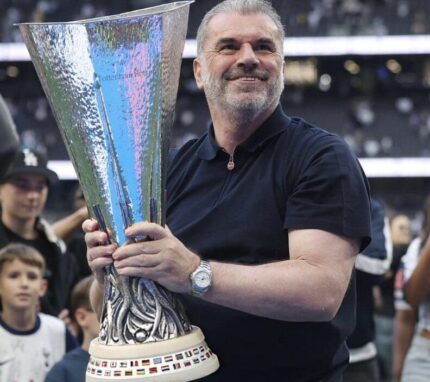Wolverhampton Wanderers have terminated Gary O’Neill’s contract following a catastrophic run of form that has left the club languishing in 19th place in the Premier League. The 41-year-old manager’s dismissal comes after a dramatic defeat to Ipswich Town, which not only highlighted the team’s on-field struggles but also exposed deep-seated disciplinary issues within the squad. With just two wins this season and sitting four points from safety, the club’s leadership determined that a change was necessary to avoid potential relegation.
The final match that sealed O’Neill’s fate was a tumultuous encounter marked by defensive errors and emotional outbursts. Jack Taylor’s last-gasp winner for Ipswich was the culmination of a performance that laid bare the team’s fragility, with Wolves conceding their 40th goal of the season in heart-breaking fashion. The match descended into chaos, with players losing composure and engaging in confrontations that further underscored the team’s mounting pressure.
On-Field Indiscipline: A Team in Turmoil
The match against Ipswich epitomized Wolves’ season-long struggles, characterized by defensive lapses and emotional instability. Matheus Cunha’s on-field altercation with Ipswich’s security staff, which involved punching and ripping off glasses, symbolized the team’s fractured mentality. Full-back Rayan Ait-Nouri’s confrontation with Wes Burns and subsequent sending off highlighted the team’s inability to maintain professional composure under stress.
These incidents were not isolated, with previous matches against Bournemouth and West Ham featuring similar meltdowns. Goalkeeper Jose Sa’s confrontation with a fan and Mario Lemina’s stripped captaincy following an outburst against teammates and coaching staff paint a picture of a team experiencing significant internal discord. The toxic atmosphere was palpable, with fans directing their frustration towards both the players and the club’s management.
Managerial Legacy and Immediate Aftermath
O’Neill’s tenure at Wolverhampton was a tale of contrasts. After guiding the club to a respectable 14th place in his first season and securing a four-year contract, the current campaign has been nothing short of disastrous. In his final interviews, O’Neill was candid about the challenges, placing partial blame on the players’ performance and mentality while acknowledging the immense pressure surrounding the team.
The club’s hierarchy has already begun the search for a new manager, with several high-profile candidates emerging. Ole Gunnar Solskjaer, spotted attending Saturday’s match, is currently the frontrunner. Other potential candidates include Steve Cooper, recently released by Leicester, and experienced manager David Moyes. The new appointment will be crucial in stemming the tide of poor performance and potential relegation.
Looking Forward: Rebuilding and Redemption
As Wolves navigate this critical juncture, the focus will be on stabilizing the team and addressing the fundamental issues that have plagued their season. The new manager will inherit a squad in need of significant tactical and psychological rehabilitation. With the transfer window approaching and the threat of relegation looming, the club must make decisive moves to reverse their fortunes.
The dismissal of Gary O’Neill represents more than just a managerial change; it’s a statement of intent from a club determined to fight for its Premier League status. The coming weeks will be pivotal in determining whether Wolverhampton Wanderers can pull themselves back from the brink and secure their top-flight future.
O’Neil’s Frustration and Scathing Farewell
In his final interviews as Wolves manager, O’Neill did not mince words. He expressed frustration over his players’ inability to perform basic defensive duties and called for greater accountability within the squad. “People can point the finger at me, but some of the responsibility has to land on the players,” O’Neil remarked.
The former Bournemouth boss also lamented the recurring defensive errors and emotional outbursts from his team. “Until we can defend our goal from basics, it’s going to be tough to win football matches,” he added. While acknowledging the immense pressure his players face, O’Neill criticized the lapses in discipline that have exacerbated Wolves’ problems.
As Wolves prepare to navigate the remainder of the season, O’Neill’s exit leaves a legacy of unfulfilled potential and a team in turmoil. The onus is now on the board to find a manager capable of steering the club away from relegation and restoring stability both on and off the pitch.














